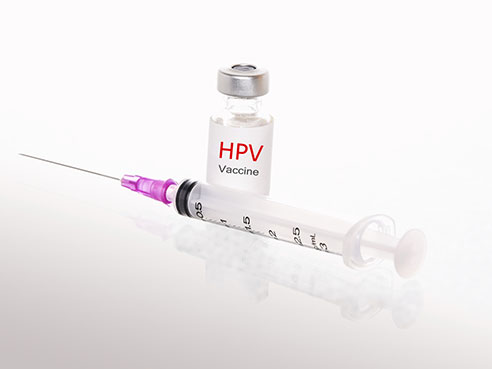 In a formal call for action, a coalition of key statewide organizations led by the University of Alabama at Birmingham Comprehensive Cancer Center is urging parents and health care providers to get children vaccinated for the human papillomavirus.
In a formal call for action, a coalition of key statewide organizations led by the University of Alabama at Birmingham Comprehensive Cancer Center is urging parents and health care providers to get children vaccinated for the human papillomavirus.
The coalition was formed in response to low vaccination rates against HPV to help increase HPV vaccination uptake.
Institutions participating in this joint call for action are: the Alabama Department of Public Health, the University of South Alabama Mitchell Cancer Institute, Blue Cross and Blue Shield of Alabama, VIVA Health, Mid-South Division of the American Cancer Society, Alabama Chapter of the American Academy of Pediatrics, and the Alabama Academy of Family Physicians.
Alabama ranks among 10 states with the lowest HPV vaccination rates in the nation. In 2014, data from the Alabama Department of Public Health showed there are significantly low rates of HPV vaccination among teens living in Alabama. Only 39 percent of adolescent girls in Alabama between 13 and 17 years old have received all three doses of the HPV vaccine, and only 9 percent of adolescent boys in Alabama have received the vaccine.
“It’s back-to-school time, and this call for action comes at a critical time when parents have immunizations on the forefront of their minds,” said Isabel Scarinci, Ph.D., MPH, professor in the UAB Division of Preventive Medicine and associate director of Globalization and Cancer at the UAB Comprehensive Cancer Center. “Whether it’s lack of education about the importance of getting boys and girls vaccinated or the social stigma surrounding it, the vaccine is unique in that it can prevent cancer. We need to get this message across to parents, adolescents and health care providers about the importance of the HPV vaccination for cancer prevention.”
The HPV vaccine is important because it protects against cancers caused by HPV infection, which includes cervical, vaginal and vulvar cancers in women and penile cancer in men, as well as anal cancer, cancer of the back of the throat, and genital warts in both men and women.
| The HPV vaccine is important because it protects against cancers caused by HPV infection, which includes cervical, vaginal and vulvar cancers in women and penile cancer in men, as well as anal cancer, cancer of the back of the throat, and genital warts in both men and women. |
According to the Centers for Disease Control and Prevention, the HPV vaccine is recommended for preteen boys and girls at age 11 or 12 so they are protected before ever being exposed to the virus. But, vaccination can start as early as 9 years of age. The vaccine is given in a series of three shots over a six-month period.
The UAB Comprehensive Cancer Center has long been a proponent of HPV vaccination, recently joining all 69 of the nation’s top cancer centers to issue a statement in support of the HPV vaccination as an effective cancer prevention strategy. Most recently, it received a support grant from the National Cancer Institute to investigate the barriers and facilitators of HPV vaccine uptake statewide.
The project gave the Cancer Center an opportunity to examine current HPV vaccination efforts in the state, to strengthen partnerships and to create a statewide coalition to promote HPV vaccination uptake.
“There is no question that the vaccine works,” said Warner Huh, M.D., director of the UAB Division of Gynecologic Oncology, who also helped to test and develop the HPV vaccine at UAB. “Now, we have a second-generation vaccine that protects against 90 percent of the HPV viruses that cause cervical cancer. This vaccine can literally eradicate the majority of cervical cancer, if given widely and appropriately.”
It has been shown that physician recommendation is still a major factor in vaccine initiation. “Now with this united call for action, we want to encourage parents to be vigilant about inquiring with their pediatricians as well as have health care providers initiate conversations about the benefits of HPV vaccination,” Scarinci said.